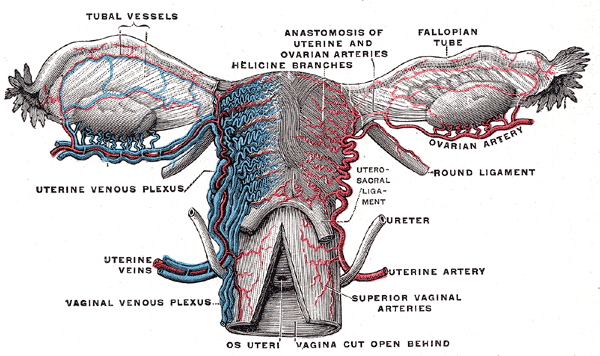Source: Wikipedia
When time is pressed and resources are scarce, a doctor’s appointment can be very short. This means that when you receive a diagnosis for a complex but not life-threatening condition, you may not have all the time you need to understand exactly how that diagnosis affects the rest of your life.
Today we’re looking at Polycystic Ovary Syndrome: what causes it, how it affects you, and how you can manage those effects.
Causes
It’s not currently known what causes PCOS to trigger, but once it does your body begins to produce too much insulin. This leads to weight gain, insulin resistance and further insulin production, locking you into a feedback loop it can be hard to escape from.
The weight you gain causes you to produce additional oestrogen, while the additional insulin stimulates your body to produce more androgen, typically known as a male sex hormone. While it’s normal for a woman’s body to create and use all three of these substances, too much of them lead to the suite of conditions that we call PCOS.
PCOS and Fertility
One of the areas of your life where PCOS has the biggest impact is fertility and your reproductive health. One of the biggest questions people have after a diagnosis is “Do you ovulate with PCOS?” – for many people being diagnosed with Polycystic Ovary Syndrome sounds like being told they are infertile. This is not the case, and if you understand how the condition affects your reproductive health, you can take steps to even the odds back in your favour.
The additional hormones in your system mean your ovaries take longer to mature and ovulate eggs – it means ovulation can be delayed, irregular and hard to predict or even skipped altogether, meaning you miss out on a chance to conceive.
Other Symptoms
The list of symptoms of PCOS is a long one, including the weight gain and fertility effects we’ve already mentioned. PCOS can also cause hirsutism, skin discolouration, hair loss and is often accompanied by depression and anxiety, though it’s not clear if these are directly biologically linked to the hormone disturbances of the condition in the same way.
Fighting Back
One of the most important ways you can fight back against these symptoms is to tackle the underlying cause. PCOS is driven by runaway insulin production, and if you can address this, you’ll see an improvement to symptoms across the board.
One thing you can do is look to supplements like Inositol that help your body use insulin. Combining this with exercise and a GI controlled diet can have a dramatic effect on the level of insulin in your body, and the amount of weight you lose! For many women, losing some of the weight that PCOS causes you to gain has enough of an effect on their insulin levels to restart regular and spontaneous ovulation.





